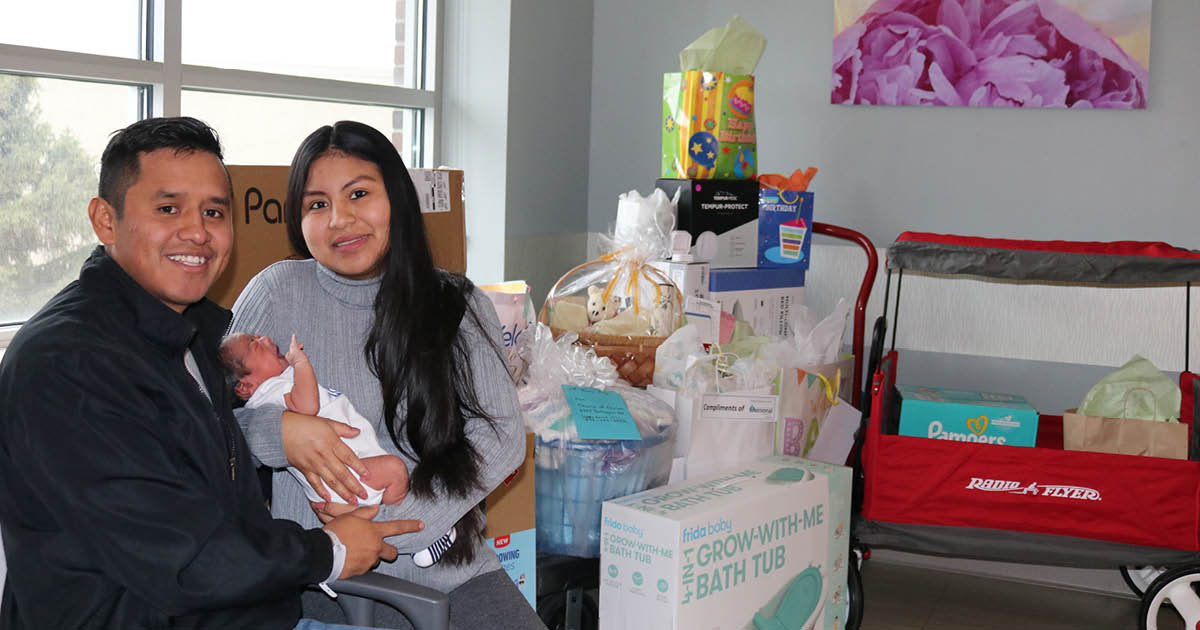This article is part of the Ultimate Guide to Pregnancy.
OB/GYN doctors will classify a pregnancy as high-risk when pregnancy problems and atypical complications threaten a mother, her baby, or both before, during, or after delivery.
Here, in the United States, one in ten pregnancies is classified as high-risk.
It’s common to have questions if you have a high-risk pregnancy. Keep reading to learn more about how to have a healthy pregnancy, understand which risk factors associated with high-risk pregnancies, and find out more about things you can do to prevent problems and take care of yourself and your baby.

Causes of high-risk pregnancies
Every pregnancy is unique, so what is a risk for one patient may not be a risk for another woman.
What happens during your first prenatal visit
Some of the most common factors that can lead to a high-risk pregnancy situation are pre-existing, and others can happen during pregnancy. Some conditions can be controlled, and others aren’t treatable.
Problems that can lead to a high-risk pregnancy include:
- Chronic health problems and conditions, such as:
- asthma that’s poorly controlled
- autoimmune disease
- diabetes
- high blood pressure
- HIV/AIDS
- kidney disease
- obesity
- polycystic ovary syndrome
- thyroid disease
- Zika infection
- Age (especially teens and mothers who are pregnant for the first-time after age 35)
- Lifestyle factors, especially use of risky substances, such as:
- alcohol
- drugs
- tobacco
- Pregnancy-related condition and complications, such as:
- Birth defects and other genetic conditions in the fetus
- Abnormal placenta position
- Delayed or poor fetal growth
- Gestational diabetes
- Multiple pregnancies (carrying twins, triplets, or more babies at one time)
- Preeclampsia and eclampsia
- Previous pre-term birth
Talk to your healthcare provider if you have questions about potential risk factors for your pregnancy.
Signs and symptoms to watch out for
If you have a high-risk pregnancy, your OB/GYN doctor may give you specific things to keep an eye on, such as:
- Bad headaches
- Blurred vision and other changes in your vision
- Decreased fetal activity
- Frequent or regular contractions
- Pain when going to the bathroom or cramping in your abdomen
- Vaginal bleeding
- Watery vaginal discharge
Preventing a high-risk pregnancy
It’s not always possible to prevent a high-risk pregnancy, but some of the things you can do to minimize risks and lower the chance of defects include:
-
- Seeing your OB/GYN doctor at regularly scheduled prenatal visits
- Eating a low-fat, high-fiber diet
- Getting your thyroid checked before getting pregnant
- Taking vitamins and supplements if you have any deficiencies
- Gaining the right amount of weight (your OB/GYN doctor can help you determine what’s right for you to support your pregnancy and make it easier to drop extra pounds after delivery)
- Talking to your doctor about progesterone shots if you have a family history of premature births
- Getting regular exercise
- Easing anxiety, staying calm, and keeping stress in check with yoga or meditation
- Avoiding people with colds and other illnesses when pregnant
Getting screened for bacterial vaginosis
Your OB/GYN doctor will keep a close watch on your pregnancy to detect problems quickly if you are high-risk.
High-risk pregnancy treatments
Treatment for any high-risk pregnancy is always customized based on your risk factors. Your OB/GYN doctor’s goal during your prenatal appointments will always be to detect potential problems as quickly as possible.
Special prenatal tests and screenings
If you are having a high-risk pregnancy, your OB/GYN doctor may recommend different tests or procedures during your routine prenatal visits to monitor your condition.
Some high-risk pregnancy tests include:
- Amniocentesis
- Biophysical profile to check the baby’s wellbeing
- Chorionic villus sampling
- Cordocentesis
- Lab tests
- Ultrasounds
Get a prenatal checkup
Are you having a baby in north-central Indiana? Get personalized prenatal care that’s close to home.
Logansport Memorial Hospital offers convenient maternity care and a nurturing childbirth experience in a comfortable, home-like environment. Serving Cass County and the surrounding communities, our experienced maternity care staff provides comprehensive, high-quality maternal and neonatal services.
Schedule an appointment by calling (574) 722-3566 or request an appointment online.
Take a virtual tour of our newly renovated Family Birth Center
You might also like:
- Folic acid for a healthy baby
- Managing gestational diabetes
- Family planning tips from Logansport Memorial Hospital




